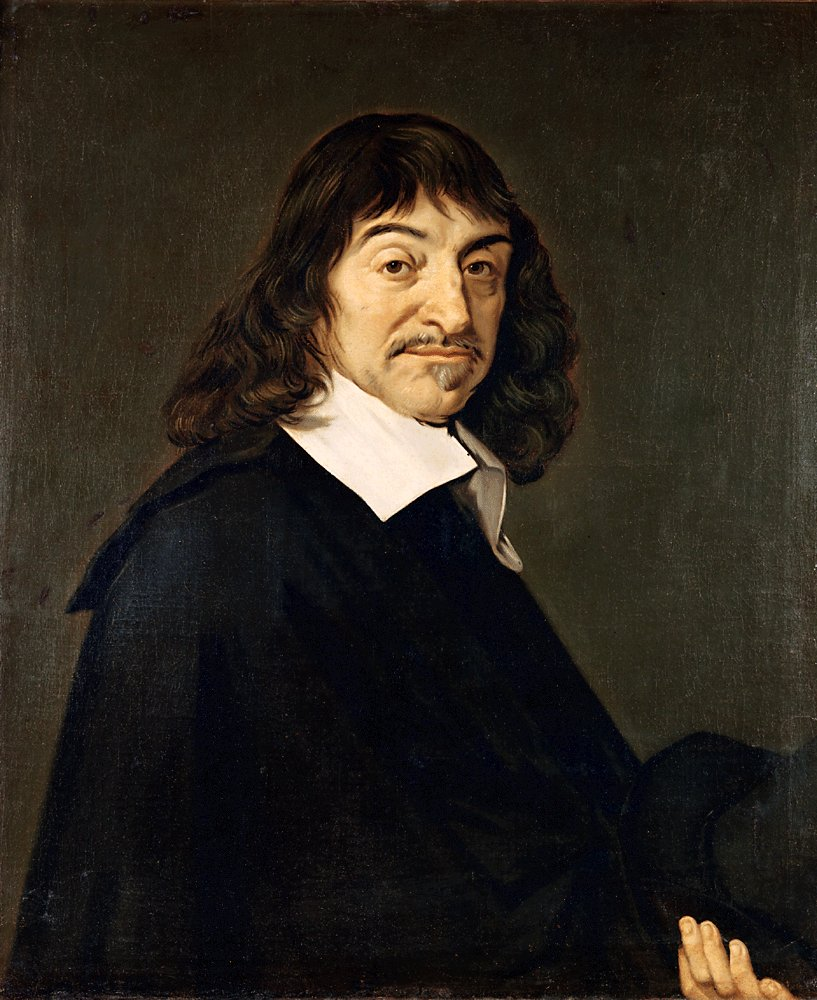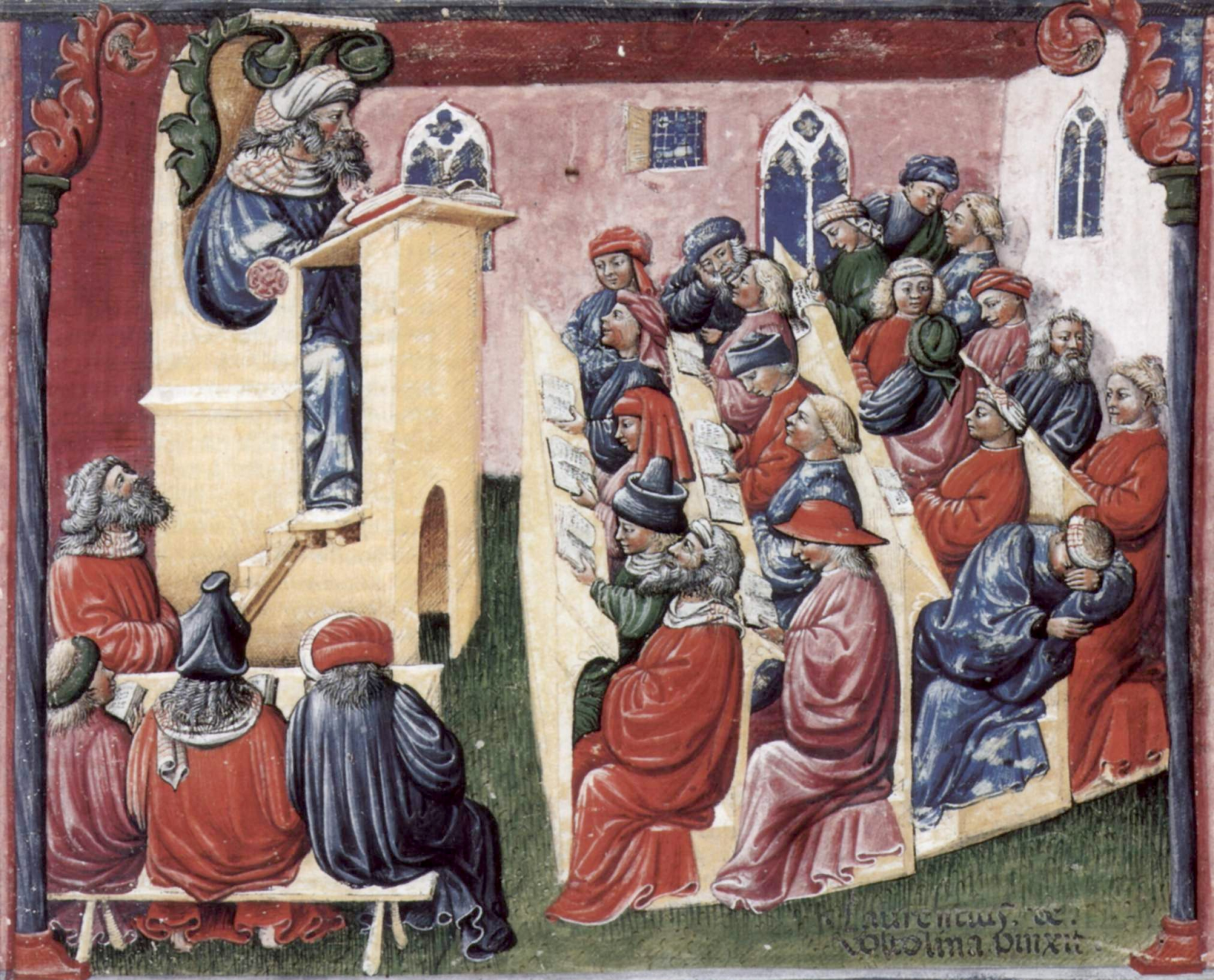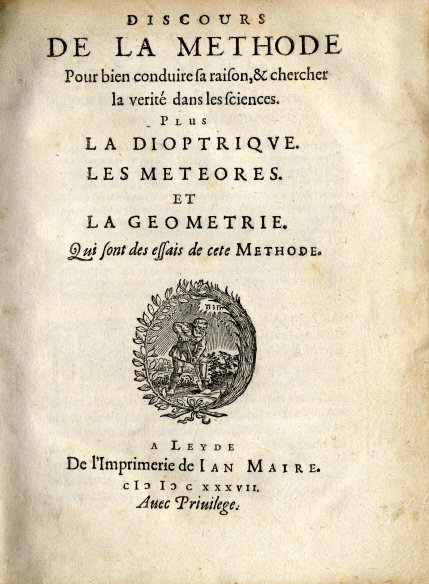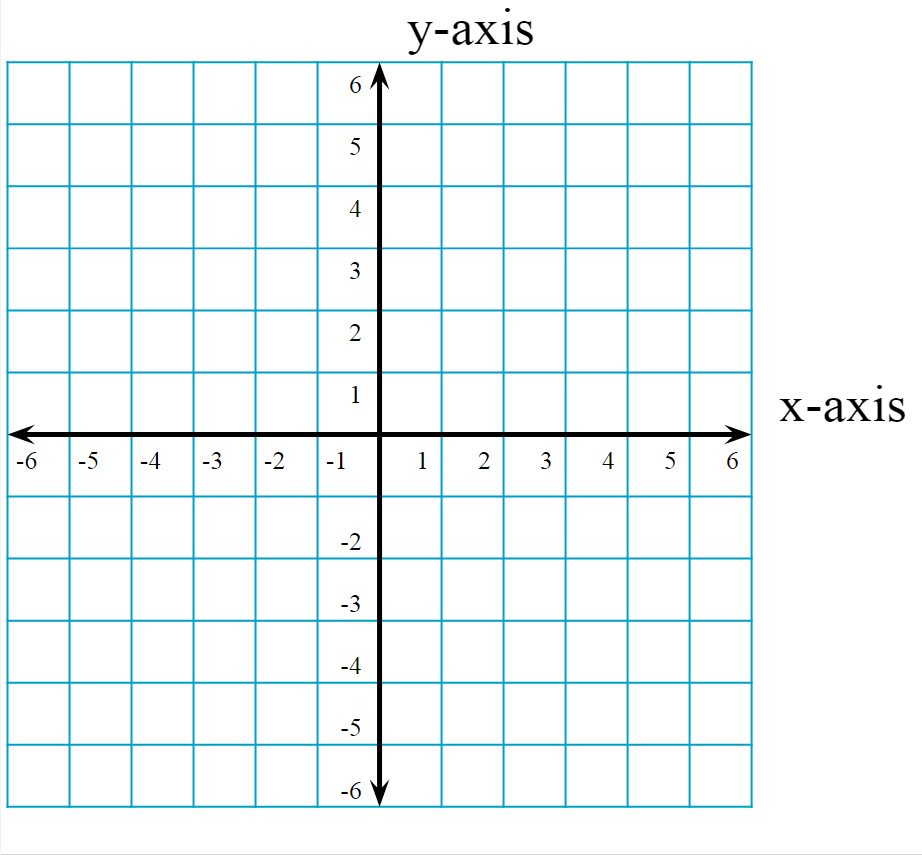Descartes
by Andy Boyd
Today, a voice crying out for reason. The University of Houston presents this series about the machines that make our civilization run, and the people whose ingenuity created them.
Utter the name Descartes and the phrase "I think, therefore I am" immediately comes to mind. It's catchy, but it fails to capture the monumental impact Descartes had on the course of human thought.

Descartes portrait by Franz Hals Photo Credit: Wikimedia
Descartes was educated in a period when Scholasticism predominated universities. Representing a reshaping of Aristotelian thought through the lens of Church scholars, Scholasticism had no interest in the scientific method. When observational facts conflicted with the Scholastic doctrine of the Church, the observational facts inevitably lost out.

Laurentius de Voltolina Photo Credit: Wikimedia
It was into this environment that Descartes unleashed his treatise Discourse on the Method of Rightly Conducting One's Reason and of Seeking Truth in the Sciences. The work was a call to understanding the world through reason. And in its pages Descartes sought to construct the foundation for human reason by stripping away belief in anything that could be doubted. He entertained the thought that "everything that had ever entered my mind was no more true than the illusions of my dreams." From this position of extreme skepticism, Descartes arrived at but one irrefutable fact: I am thinking, therefore I exist.

Descartes Discours de la Methode Photo Credit: Wikimedia
Now, it's a long way from there to a world governed by human reason. Descartes bridged this gap by arguing his existence derived from something more perfect than himself. That something was God.
Throughout his life Descartes was a devout Christian. He believed his arguments did more than simply provide a way for faith and reason to peacefully coexist. To Descartes, faith and reason were intimately bound together. Surely the Church would embrace what Descartes had to offer.
As word of Discourse on the Method spread, freethinking scholars saw an alternative to the Scholastic way of thinking. For Scholastics, this was a challenge to established orthodoxy. One illustrative point of contention arose over transubstantiation -- the Catholic dogma that the bread and wine used in the ritual of the Catholic mass were transformed into the actual -- not metaphorical -- body and blood of Jesus Christ. Both Scholastics and Descartes' followers were in full agreement that transubstantiation occurred, but they differed in how to explain it. Scholastics believed the very substance of the bread and wine were transformed, whereas Cartesians would argue that if it looked and smelled like bread and wine, it was bread and wine. For Cartesians, the transformation occurred in the spiritual realm of mind and soul, a realm separate and distinct from the physical world of bread and wine. Such was the basis for Scholastic obstructionism.
Like his contemporary Galileo, Descartes' was a voice crying out for reason. And his ideas, coupled with a writing style that was both comprehensible and engaging, helped fuel the passions of minds thirsting for a new way. He was truly a most inventive mind.

Cartesian Coordinates Photo Credit: Wikimedia
I'm Andy Boyd at the University of Houston, where we're interested in the way inventive minds work.
(Theme music)
René Descartes. Discourse on the Method of Rightly Conducting One's Reason and of Seeking Truth in the Sciences. From the Project Gutenberg website: https://www.gutenberg.org/files/59/59-h/59-h.htm. Accessed November 28, 2017.
René Descartes. From the Stanford Encyclopedia of Philosophy website: https://plato.stanford.edu/entries/descartes. Accessed November 28, 2017.
Russell Shorto. Descartes' Bones: A Skeletal History of the Conflict Between Faith and Reason. New York: Vintage Books, 2008.